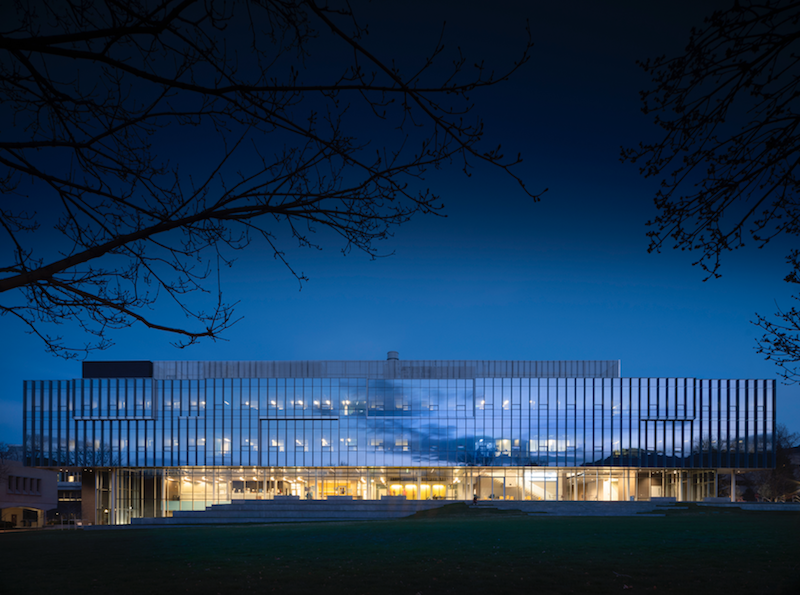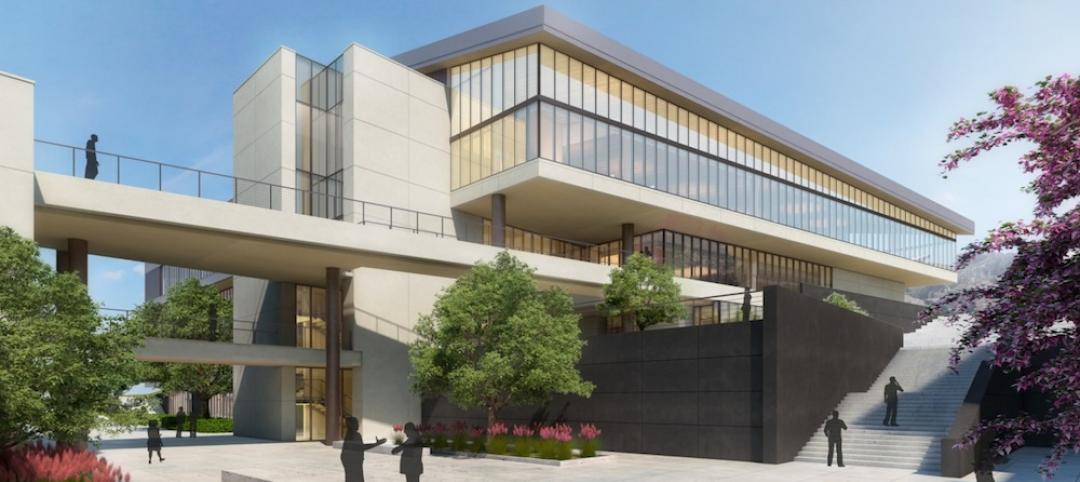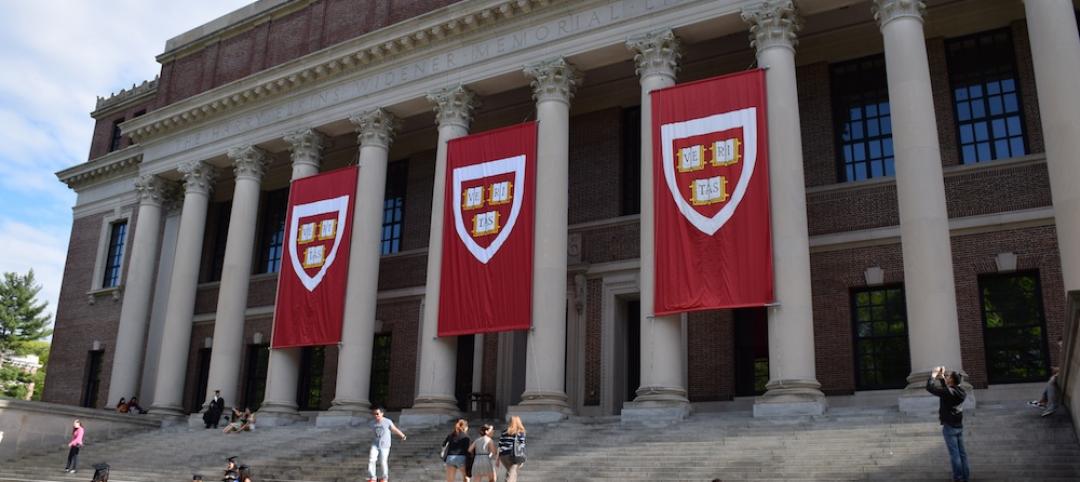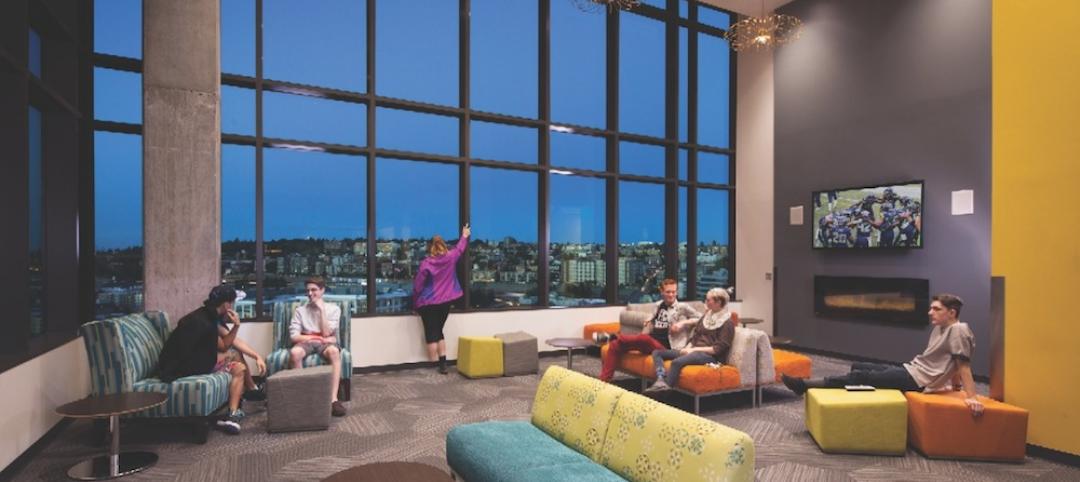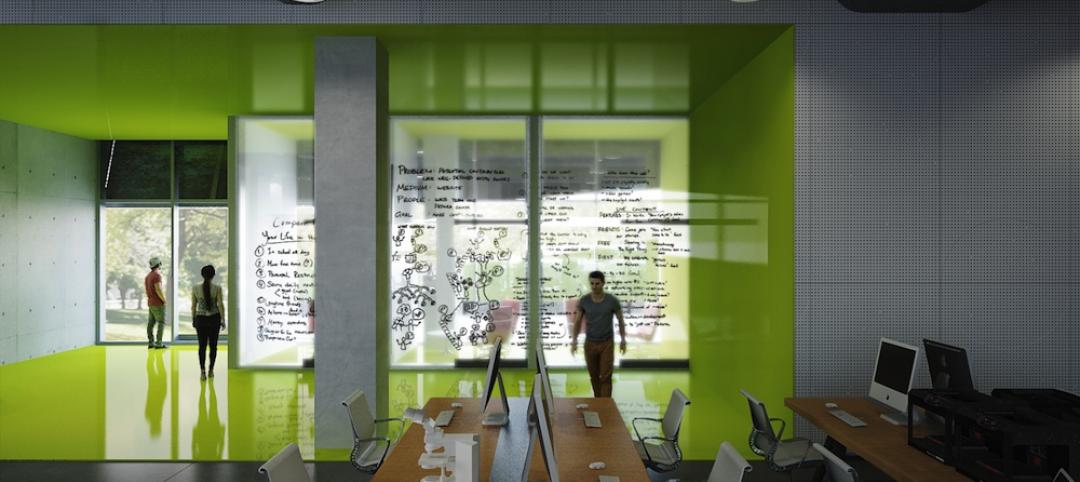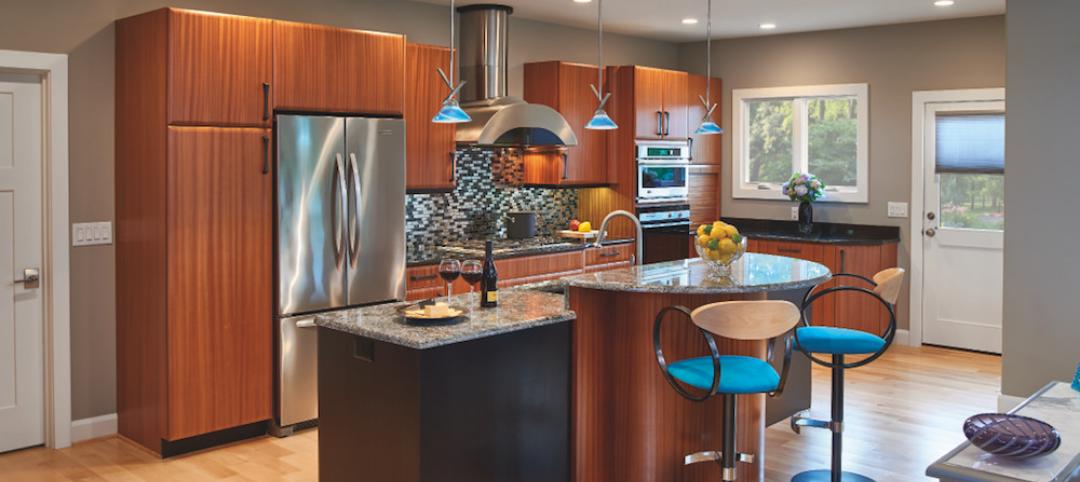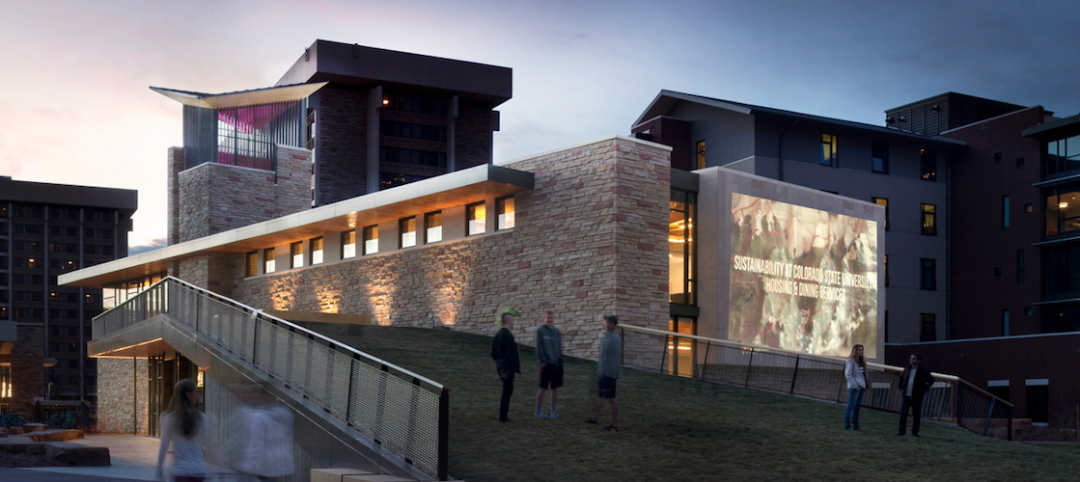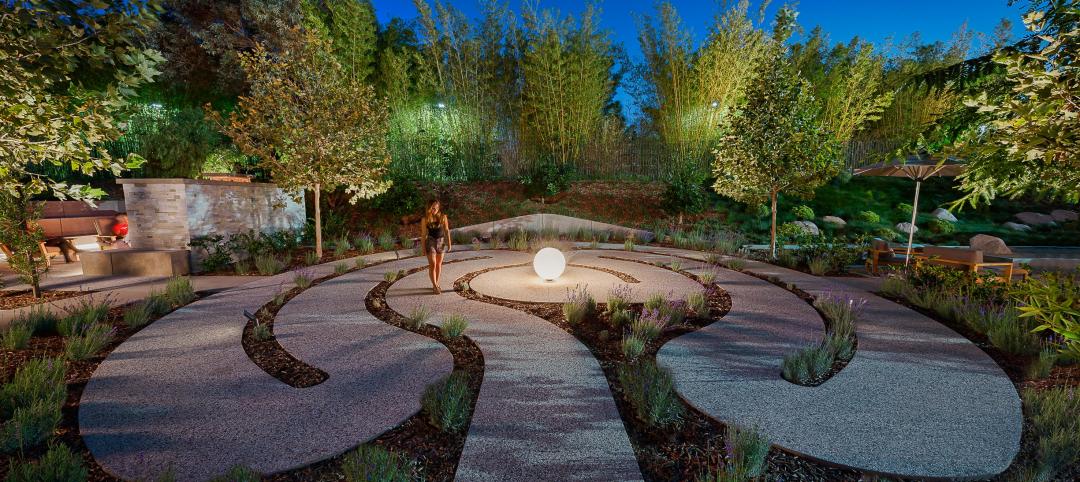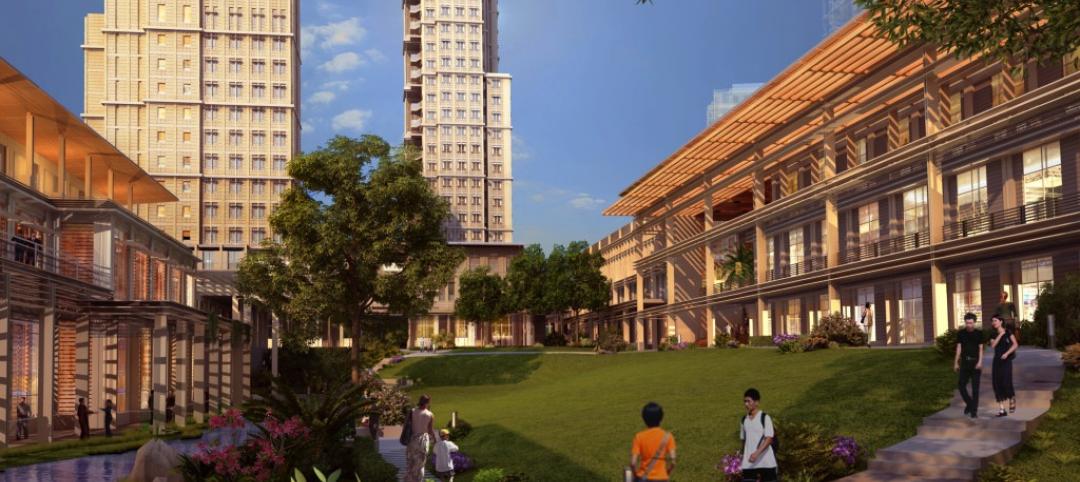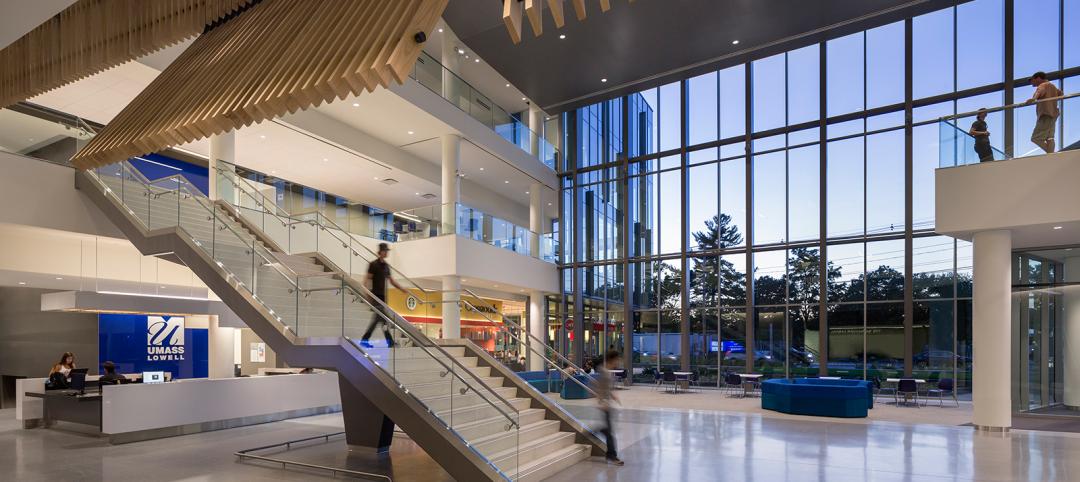The CoorsTek Center, a four-story education and research facility on the Colorado School of Mines campus, has officially been completed.
The Center supports a range of academic and research activities and is the new home for the College of Applied Science and Engineering (CASE) and the Department of Physics. A metal and glass facade is vertically punctuated by service cores clad in dark masonry that help to anchor the building’s entrances. The building’s northwest exterior, which fronts the campus’s Kafadar Commons, comprises full-height glazing at Level 1, and vertical glass panels and metal fins at Levels 2 and 3 that float above and modulate as influenced by the building’s interior program.
In addition to the CASE classrooms, the CoorsTek Center also includes general classroom space such as media-intensive “Active Learning” rooms that are flexible and can be rearranged for group work and discussions. A promenade on Level 1 incorporates seating and collaborative work areas that emulate tech workplaces to prepare students for post-college work life.
See Also: Suffolk breaks ground on large housing/dining complex for UMass Dartmouth
While Level 1 is available for the entire campus, Levels 2 and 3 contain dedicated teaching and research laboratories and faculty and graduate student offices. Below grade are additional lab spaces with specific lighting, sound, or vibration requirements.
Bohlin Cywinski Jackson designed the building in association with Anderson Mason Dale Architects.
Related Stories
University Buildings | Mar 11, 2016
How architects can help community colleges promote community on campus
Even in the face of funding challenges and historic precedent, there are emerging examples of how partnership between two-year academic institutions and designers can further elevate community on campus. CannonDesign's Carisima Koenig has a few key examples.
University Buildings | Mar 1, 2016
The 5 most questionable college and university rankings of 2015
SmithGroupJJR's David Lantz identifies five of the most flawed higher education rating systems, including ones with arbitrary categories, and others that equate college with a transactional investment.
University Buildings | Feb 29, 2016
4 factors driving the student housing market
In the hyper-competitive higher education sector, colleges and universities view residence halls as extensions of their academic brands, both on and off campus.
University Buildings | Feb 17, 2016
New ideas to help universities attract and empower STEM students
Educational institutions are focusing on new learning strategies that engage students in activities, enable collaboration across STEM disciplines, and encourage students to use their hands just as much as their heads, as Stephen Blair of CannonDesign writes.
Multifamily Housing | Feb 1, 2016
Top 10 kitchen design trends for 2016
Charging stations, built-in coffeemakers, and pet stations—these are among the top kitchen design trends for the coming year, according to a new survey of kitchen and bath designers by the National Kitchen & Bath Association.
| Jan 14, 2016
How to succeed with EIFS: exterior insulation and finish systems
This AIA CES Discovery course discusses the six elements of an EIFS wall assembly; common EIFS failures and how to prevent them; and EIFS and sustainability.
Greenbuild Report | Dec 10, 2015
AASHE’s STARS tool highlights the university sector’s holistic approach to sustainability
Buzzwords like “living lab” and “experiential learning” are indicative of the trend toward more holistic sustainability programs that incorporate all facets of college life.
University Buildings | Nov 5, 2015
How active design is reshaping higher education campuses
Active design, a dynamic approach to design with a primary focus on people, assists students in learning to make healthy choices, writes LPA's Glenn Carels.
University Buildings | Nov 4, 2015
Yale completes Singapore campus
The Yale-NUS College has three residence halls and two administrative and academic buildings, with courtyards in the middle of them all.
University Buildings | Oct 16, 2015
5 ways architecture defines the university brand
People gravitate to brands for many reasons. Campus architecture and landscape are fundamental influences on the college brand, writes Perkins+Will's David Damon.


